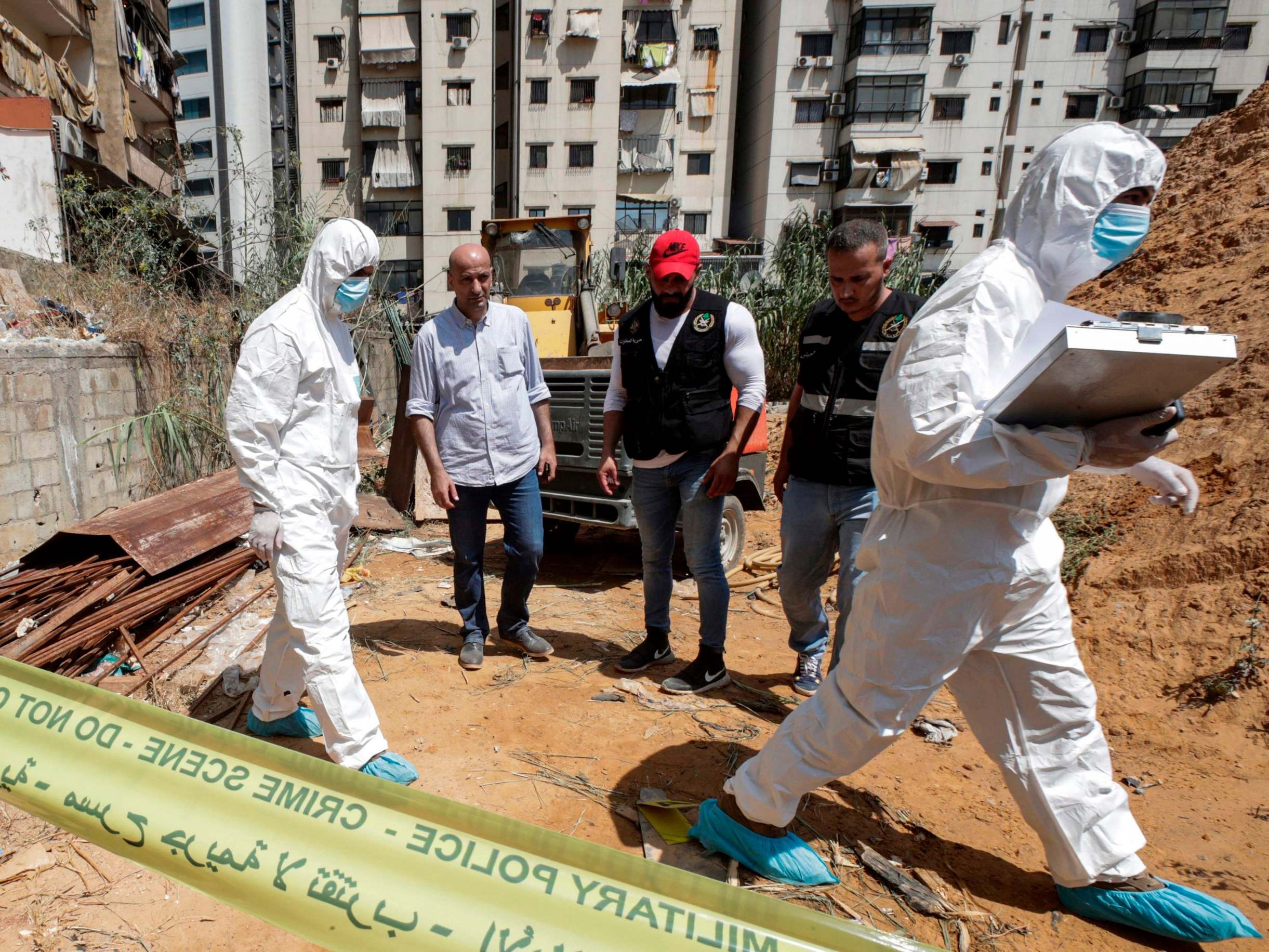Game of Drones: Israel steps up air war against Iran, raising fears of wider conflict
Israel launched flurry of strikes against Iran-backed targets across the region over the weekend

Israel raised the stakes in its regional rivalry with Iran over the weekend by carrying out a flurry of attacks against its forces and their proxies in three different countries.
Israeli drones and aircraft struck a number of Iran-allied militia groups in Iraq, Syria and Lebanon over the course of 48 hours, in an escalation which has raised fears of a wider conflict.
The Israeli military has been carrying out airstrikes against Iranian targets in Syria for some time in an effort to curtail its regional footprint, but it now appears to have widened the theatre of operations for its air campaign to include Iraq and Lebanon, at least temporarily.
The first of the weekend’s strikes came on Saturday when Israel targeted Iranian forces near Damascus. An Israeli military spokesman said the strikes had thwarted an attempt by Iran to launch “killer drones” into Israel.
“The strike targeted Iranian Quds Force operatives and Shiite militias which were preparing to advance attack plans targeting sites in Israel from within Syria over the last number of days,” the military said in a statement, referring to the overseas arm of Iran’s Revolutionary Guards.
Lebanon’s young refugees tell their stories through the lens
Show all 15Israel’s prime minister Benjamin Netanyahu wrote on Twitter after the attack: “Iran has no immunity anywhere. Our forces operate in every sector against the Iranian aggression. If someone rises up to kill you, kill him first.”
Two members of the Lebanese Shiite group Hezbollah and one Iranian were killed in the Israeli strikes around Damascus, according to the Syrian Observatory for Human Rights, a UK-based war monitor. Iran denied its forces had been hit.
Iran and Hezbollah are deeply involved in Syria’s civil war, and have sent thousands of fighters throughout the conflict to keep President Bashar al-Assad in power. In an effort to counter Iran’s rising regional influence, Israel has carried out hundreds of airstrikes against both in the country. Many of those attacks have been aimed at preventing Iran delivering weapons to its ally Hezbollah in Lebanon.
Israel and Hezbollah fought a deadly war in 2006 that devastated much of Lebanon. More than 1,000 Lebanese citizens were killed — the vast majority of them civilians — including hundreds of children. According to Human Rights Watch report in the aftermath of the conflict, "a simple movement of vehicles or persons – such as attempting to buy bread or moving about private homes – could be enough to cause a deadly Israeli airstrike that would kill civilians." Forty-four Israeli civilians were also killed by indiscriminate Hezbollah rockets.
Since the 2006 conflict, Israeli attacks on Hezbollah have largely been confined to Syria.
But that changed in the early hours of Sunday morning when two Israeli drones crashed into what appeared to be an attempted attack on Hezbollah’s media office in the Lebanese capital Beirut.
Hezbollah spokesman Mohammed Afif said a small, unmanned reconnaissance drone fell on a building housing the group’s media office in the Moawwad neighbourhood in Dahiyeh.
He said a second drone, which appeared to have been sent by Israel to search for the first one less than 45 minutes later, exploded in the air and crashed in an empty plot nearby, shattering windows in surrounding buildings. He said the second drone was likely armed, judging by the damage it caused.
Lebanon has complained to the United Nations about Israeli planes regularly violating its airspace in recent years, but those flights have mostly been used for surveillance purposes.
Lebanon’s President Michel Aoun described the drone attack as “similar to a declaration of war” following a meeting with UN officials.
Hezbollah leader Hassan Nasrallah promised a firm response to what he said was “the first clear, big, dangerous, breach of the rules of engagement drawn up in 2006” after the end of a devastating conflict between the two sides.
“If we keep quiet on this violation, this will lay a dangerous path for Lebanon,” he said, adding that Hezbollah would attempt to down any Israeli drones that violate Lebanese airspace from now on.
“I say to the Israeli army on the border from tonight, stand guard. Wait for us one, two, three, four days ... what happened last night won’t cut it with us,” Nasrallah said.
Apparently unperturbed by the warning, Israeli drones hit a military position belonging to a Palestinian faction allied with Iran in Lebanon’s Bekaa valley early on Monday.
In Iraq, too, Israel is also thought to have been behind a series of attacks against Iran and its allies which began last month and continued this weekend.
US officials recently told the New York Times that Israel was responsible for the bombing of an Iranian weapons depot in Iraq last month at a facility run by an Iraqi Shiite paramilitary group backed by Iran, and on Sunday the same militia blamed Israel for a drone attack which left one of its fighters dead.
A statement from the Popular Mobilisation Forces (PMF), a state umbrella grouping of mostly Iran-backed Shiite Muslim factions, said the strikes took place nine miles away from the Syrian border.
The increase in attacks across the three countries has raised the possibility of retaliation against Israel, according to analysts, but they are likely to be carefully calibrated to avoid an all-out conflict.
“Given the increase and fluidity of these strikes, the Iranians and their proxies may be looking at ways to retaliate to not only save face, but send Washington and Jerusalem a message, said Phillip Smyth, a fellow at the Washington Institute and researcher on Shiite armed groups.
“Obviously, there’s always the chance that this could spark a larger conflagration. However, Iran and its proxies aren’t yet at a level where they can or really want to launch major retaliations. They are taking a patient path,” he added.
Sami Nader, director of the Levant Institute for Strategic Affairs, said both Hezbollah and Israel will want to avoid things spiralling out of control.
“It is more of a warning to Iran not to use Lebanon as a card in its conflict with Washington,” he said.
“Hezbollah won’t be keen to launch an attack right now. The timing is not great. It is exhausted from the battle in Syria and Lebanon is on the verge of financial collapse. If it collapses, Hezbollah collapses too,” he said.
Additional reporting by agencies
Subscribe to Independent Premium to bookmark this article
Want to bookmark your favourite articles and stories to read or reference later? Start your Independent Premium subscription today.





Join our commenting forum
Join thought-provoking conversations, follow other Independent readers and see their replies
Comments